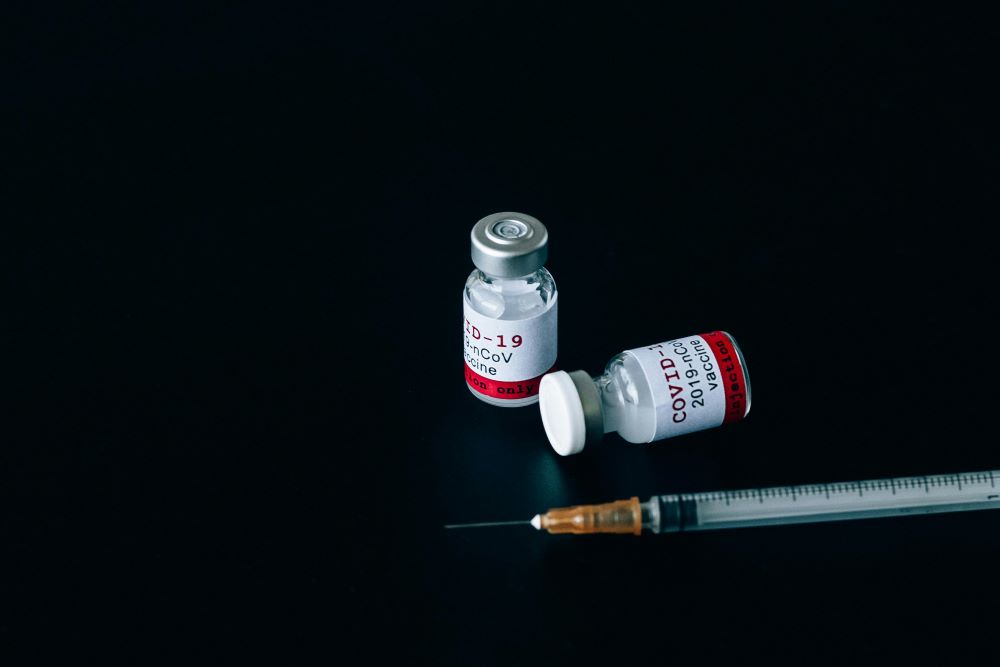Getting vaccinated appeared to have offered some relief in the early stages of the pandemic.
With new information coming out about the impact of long COVID the physical and mental health of individuals who suffer from it, as well as the sheer number people getting its various strands, here has been increased interest in determining just how much the virus can negatively impact quality of life. Research has shown that long COVID can lead to drops in cortisol levels, which can cause emotional instability, cognitive issues, and a reduced capacity to handle daily challenges. It can also contribute to depression and anxiety, cause chronic fatigue, and impair immunity, which can, in turn, lead to inflammation and autoimmune challenges.
Given this, a new study out of the United Kingdom, published in JAMA Psychiatry, sought to build upon previous datasets and determine the extent of COVID’s impact on mental health, specifically. Drawing from electronic health records of over 18 million people across the U.K., offering a substantial dataset for analysis, the research focused on the psychological impact of getting vaccinated against the virus. Researchers were particularly interested outcomes for common mental health issues including depression, anxiety, addiction, eating disorders, as well as for severe conditions such as bipolar disorder, schizophrenia, and psychotic depression.
One of the key findings was that individuals who contracted COVID-19, particularly those who were not vaccinated, were at an increased risk of developing mental health issues in the months following their initial diagnosis, and this effect was especially severe in the first year of the pandemic when uncertainty and fear surrounding the virus were at their peak. Mental health challenges were also found to persist for several months after infection, particularly for individuals who experienced the worst cases of COVID-19, including those that led to hospitalization.

Interestingly, the research also found that vaccinated individuals who had COVID-19 in spite of their efforts to protect against it had a lower incidence of post-infection mental health conditions compared to those who remained unvaccinated. This suggests that getting vaccinated may provide some level of protection against the psychological burden of the virus (in addition to the physical protection it can provide). The team wrote this could be due, in part, to the vaccine’s ability to reduce symptom severity and the mental and emotional reassurance that comes with being vaccinated.
The study also highlighted that the mental health effects of COVID-19 were not the same across all populations. Men, older adults, and individuals with a pre-existing history of mental health conditions were found to be at the highest risk of developing these disorders post-infection.
Despite their findings, the team cautioned that the relationship between having the virus and developing mental health issues is more complex than the parameters of their analysis. While the physiological effects of the virus, such as inflammation and microvascular changes, may contribute to psychological disorders, psychosocial factors are also likely to be at play in most cases. Fear of contracting the virus, stress associated with extended isolation, and subsequent loneliness, as well as feelings of uncertainty surrounding treatment and prognoses all likely contributed to the increase in mental health issues during the pandemic.
The study’s authors also pointed to the importance of addressing vaccine hesitancy, particularly among individuals with existing mental health conditions. They concluded in their analysis that individuals with a history of mental health disorders were less likely to get vaccinated, potentially leaving them more vulnerable to the negative mental health effects of COVID-19. Encouraging vaccination in these populations in particular could be a vital step in fending off long-term mental health impacts.
While the pandemic’s toll on mental health was widespread and severe, particularly in the early stages of panic, uncertainty, and quarantines, getting vaccinated appeared to have offered some relief, both by reducing the severity of the infections themselves and by alleviating some of the associated psychological stress. These results draw attention to the importance of continuing to address the subsequent mental health crisis that resulted.
Sources:
Long COVID Cortisol Changes Could Lead to Symptom Resurgence
Study highlights mental health benefits of COVID-19 vaccination
COVID-19 and Mental Illnesses in Vaccinated and Unvaccinated People


Join the conversation!